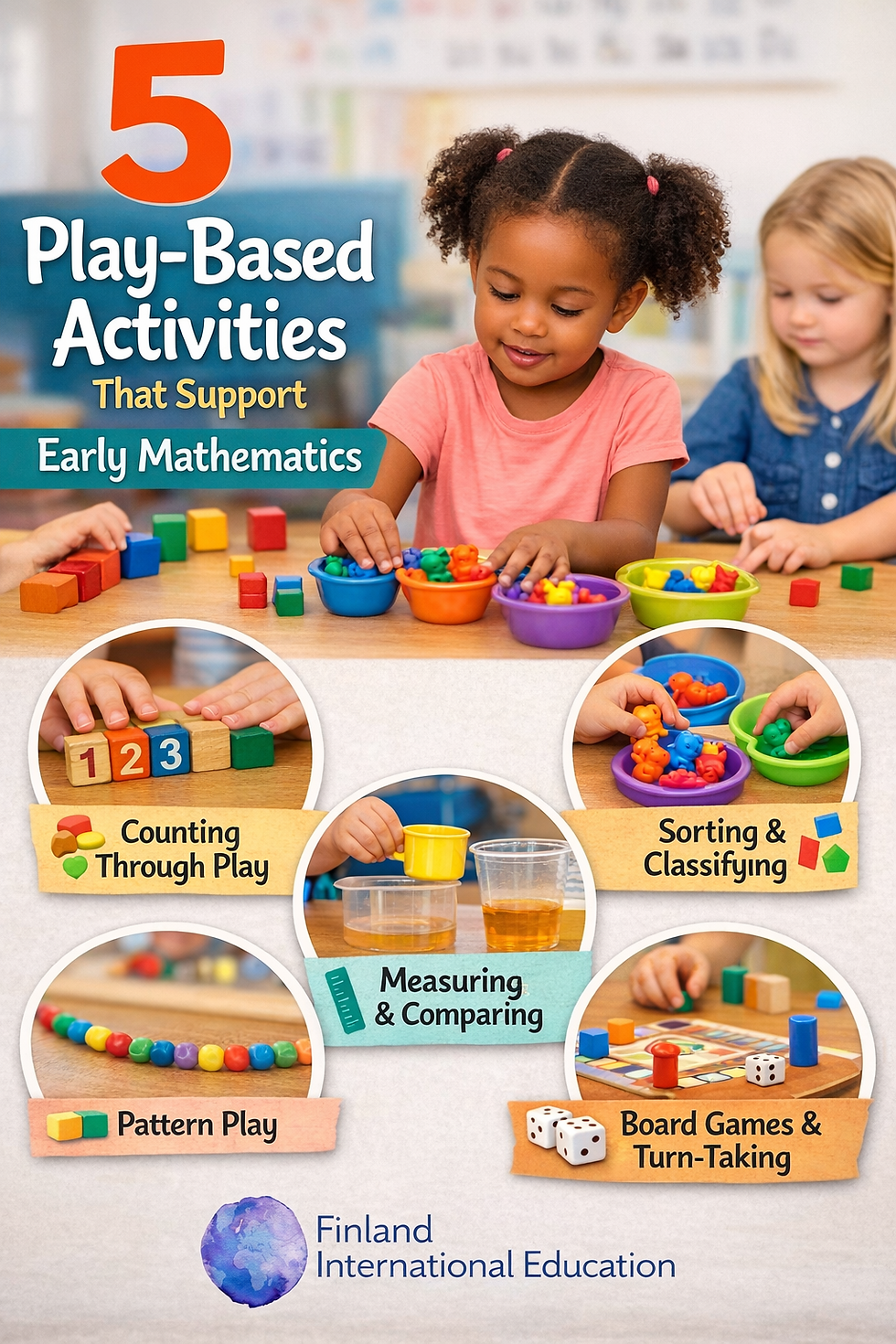How Do Everyday Learning Routines Provide a Strong Foundation of Security?
- FINE
- 3 thg 11, 2025
- 2 phút đọc

As autumn kicks off and routines return, it’s the perfect time to examine how everyday learning routines can provide a strong foundation of security and confidence for children. At Finland International Education (FINE), rooted in Finland’s world-renowned Early Childhood Education and Care (ECEC), daily routines are not just habits. They are pathways to emotional safety and meaningful learning.
Finnish Pedagogy: A Secure and Joyful Learning Environment
FINE emphasizes a pedagogy where every day is fun, inspiring, and educational, grounded in Finnish national ECEC values. This approach fosters an environment in which children feel safe to explore, make mistakes, and grow both academically and emotionally.
Routines as Anchors for Learning and Well-Being
Consistent daily routines, like greeting rituals, group activities, and structured learning blocks, act as anchors. They provide predictability, which nurtures a sense of stability and safety. In a supportive routine, children know what to expect and can focus their energy on exploration rather than logistics.
Moreover, FINE’s methodology promotes phenomenon-based learning (PBL), encouraging children to connect real-world experiences with learning. Embedding such lessons into everyday rhythm, like turning snack time into a lesson on nutrition or nature walks into discovery, strengthens both routine and relevance.
Building Security Through Everyday Practices
Here’s how educators can weave security into daily routines:
Morning Rituals: Begin with a welcome circle, familiar songs, or check-ins help children transition and feel grounded.
Consistent Learning Blocks: Balance structured activities (like story time or phenomenon exploration) with free play to support autonomy and predictability.
Reflection and Sharing: End the day with a closing ritual. Children can share something they learned or felt, reinforcing memory and emotional processing.
Practical Tips for Parents at Home to Provide Everyday Learning Routines
1. Predictable Mornings – Wake up at the same time, have breakfast together, and talk about the day ahead. Even a two-minute “plan of the day” conversation can reduce anxiety.
2. Transition Signals
Use simple cues, such as a favorite song, a bell, or a timer, to signal a transition from one activity to another. This mimics the structured flow children experience at school.
3. Learning in Daily Life
Involve children in activities such as cooking, cleaning, gardening, or shopping. These everyday tasks naturally build math, science, and language skills while reinforcing routine.
4. Evening Wind-Down
Create a calm end-of-day ritual: dim lights, read together, and talk about “one good thing” from the day. This helps children process emotions and sleep better.
5. Celebrating Consistency
Praise not just achievements, but the act of showing up and following routines. This builds self-confidence and a sense of mastery.
Why It Matters?
When routines are predictable and flexible, children experience both comfort and a sense of ownership over their actions and learning. They feel safe to explore, curious to learn, and confident to share. This builds not just academic readiness but emotional resilience, something FINE’s model strives to foster through its pedagogical expertise.
To all educators and parents: Every small, consistent routine you build today is an investment in a child’s confidence, security, and love of learning tomorrow. Keep going. Your efforts truly matter! 💛
With care,




Bình luận